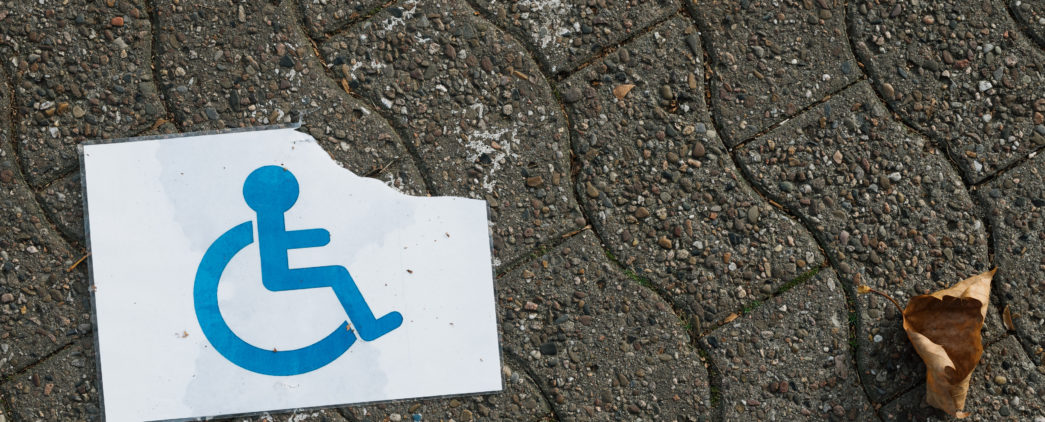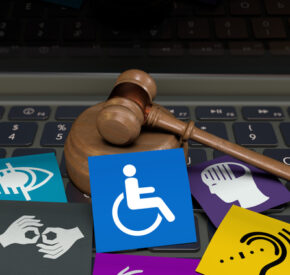Ableism and Awareness
Building awareness and empathy to address harmful ableist language

Lizzo is a performer, an artist, and it is quite impossible not to dance to her music. She also happens to have provided a lovely example of what one can do when they use language that is ableist without intention. She listened with empathy and decided to make a change. In her new song, GRRRLS, Lizzo used the word ‘Spaz’ in the original version. This term is considered ablest as it refers to spastic or uncontrollable movements in people with cerebral palsy, tremor disorders, multiple sclerosis or myriad other medical conditions. Lizzo replied on social media to the criticism,
“It’s been brought to my attention that there is a harmful word
in my new song “GRRRLS”. Let me make one thing clear: I never
want to promote derogatory language. As a fat black woman in
America, I’ve had many hurtful words used against me so I over-
stand the power words can have (whether intentionally or in my
case, unintentionally). I’m proud to say there’s a new version of
“GRRRLS” with a lyric change. This is the result of me listening and
taking action. As an influential artist I’m dedicated to being part
of the change I’ve been waiting to see in the world.”
Lizzo
That is inspiring. Despite the fact that the post was written using an image without alternative text, the sentiment was genuine. When Tamman used a common colloquial phrase that was ableist in the past, we held ourselves accountable and shared our learning process in our blog post, “Language Reflects Culture.” We cannot stress this point enough though, people make mistakes with language. All of us, will at one time or another use ableist language again. English and our culture is so filled with references, phrases, and words that can be harmful or microaggressions to others. If you don’t believe us, we encourage you to check out “Glossary of Ableist Phrases” from autistichoya.com and ask yourself, not if you have used words on their list, but how many and how often do you say them. Our favorite part of this blog article is the author’s ‘consider instead’ section after each word or phrase. Awareness building and educating at the same time – amazing! Change is hard and it takes time to unlearn habits of speech. Let’s work to be accountable when mistakes occur and work hard not to say it again.
When Tamman is working with a client to outline a digital accessibility roadmap or develop a comprehensive maturity plan, we work with our partners to understand that this is not about being perfect. Fear of feeling like they are not experts or can’t fix everything at once, often leads companies to take no action or to ignore the issue and hope no one notices. Apprehension around offending or not being perfect with language often leads to silence or retreating from having hard conversations. Language and culture are constantly evolving and it can be confusing. Building awareness and increasing understanding will lead to different and better choices, as well as actions. This is the goal and it will take time.
It is so much easier to attack others or to play the victim than to educate, build awareness, and hold others accountable respectfully. And to do so with consistency and with empathy adds to the level of difficulty. It also adds to the staying power of the change we wish to see in the world. Attacking others leads to defensiveness. Name calling and deriding someone’s ignorance feels righteous and good in the moment, but does not make for a better world. Conversely, living with a closed mind or being unwilling to reflect on choices is lazy. Ignorance can be bliss, but it is a temporary and false bliss. Inevitably, we must engage with the world around us and that means confronting our abelist language choices.
Our colleague likes to say, ‘inclusivity means being inclusive of everyone.’ Each of us has had unique lived experiences that have guided and informed our lives, knowledge and access. Taken to its extreme, this looks like radical empathy. You can check out one of our Article 19 podcasts for more about that. Suffice it to say it is not always easy to lead with love and understanding, but it is the most important role you can play to grow your organization in embracing empathy and inclusion.
At Tamman we have decided to stand firmly on the point that we will build a more inclusive web and world. It is our responsibility to one other and to the larger purpose of building community. Would you like to join us in this?





